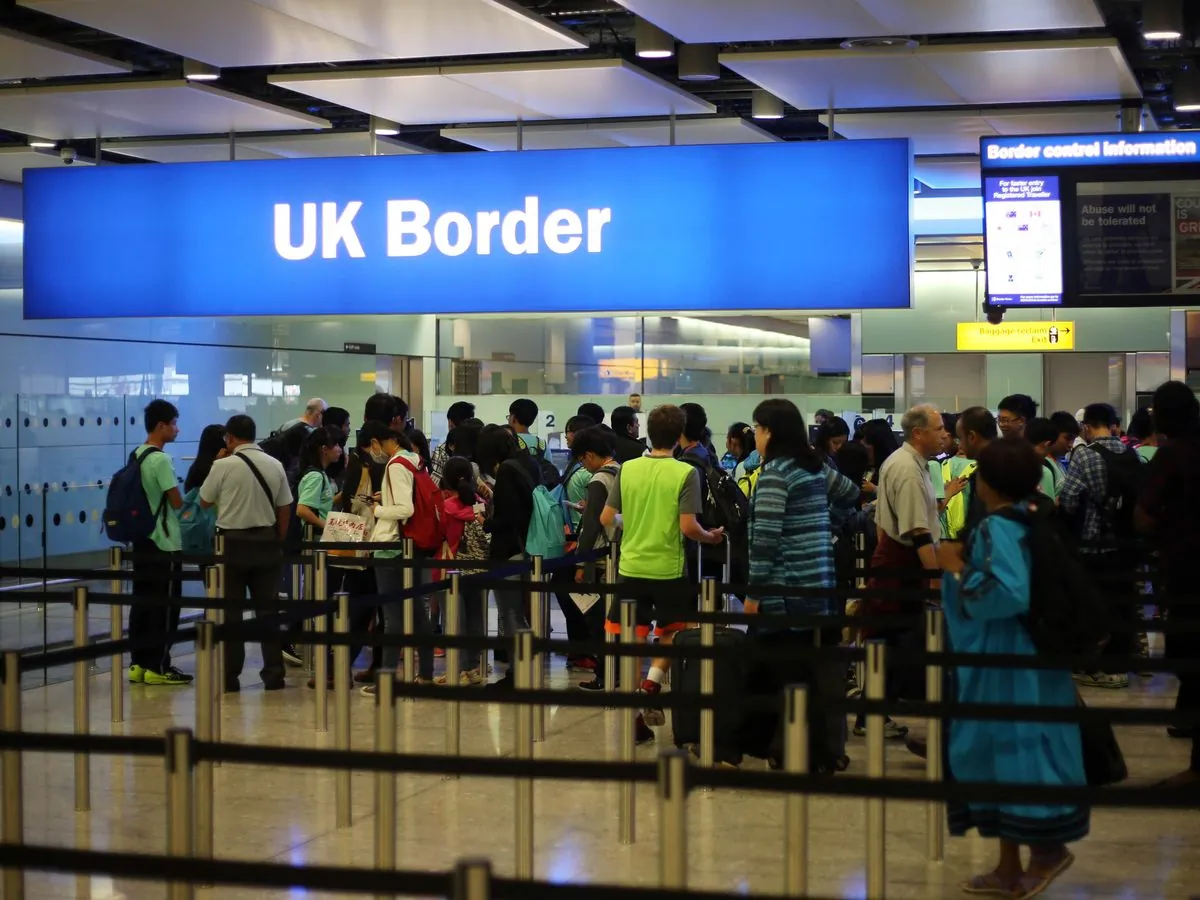UK Grapples with Immigration Surge as EU Tightens Borders
As Germany tightens border controls, the UK faces record immigration levels. Post-Brexit policy changes and global events have led to unexpected outcomes, challenging both nations' approaches to migration management.

In a surprising turn of events, Germany has opted to tighten controls on its borders, while the United Kingdom grapples with record-high immigration levels. This shift comes less than a decade after former German Chancellor Angela Merkel welcomed over a million asylum seekers in 2015, declaring "Wir schaffen das" (we'll manage).
The UK's departure from the European Union in 2016 was widely interpreted as a move to restrict immigration. However, recent data suggests that the UK is now experiencing higher levels of net migration compared to several EU countries. In 2023, net migration to the UK was equivalent to 1% of its population, surpassing Germany (0.8%), Italy (0.5%), and France (0.3%).

The UK's post-Brexit immigration policy changes have contributed to this unexpected outcome. In early 2021, the country introduced a new points-based system, which Madeleine Sumption, director of Oxford University's Migration Watch, describes as "a liberalisation for non-EU citizens." This system reduced skills requirements and lowered salary thresholds for work visas, leading to a significant increase in non-EU migration.
Comparing immigration policies across countries is complex due to various factors, including language requirements, historical links, and implementation differences. For instance, while both the UK and Japan have language requirements for immigrants, English is more widely spoken and easier to learn than Japanese, making the UK more attractive to potential migrants.
The UK's immigration challenges are further complicated by internal political dynamics. Various government departments often advocate for exceptions to immigration restrictions, citing needs in sectors such as healthcare, hospitality, and education. The Treasury has also supported higher immigration levels, concerned about potential economic impacts of labor shortages.
Public opinion on immigration in the UK remains divided. A recent Ipsos and British Future survey found that 52% of respondents support reducing immigration, up from 48% in 2023. However, there's a stark political divide, with 70% of Conservatives favoring reductions, while most Labour supporters do not.
Across Europe, immigration has become a central political issue. In Germany, the rise of the far-right Alternative for Deutschland (AfD) party has prompted centrist parties to adopt tougher stances on immigration. The EU has responded with policies focused on outsourcing immigration management and framing migration as a security threat.
Recent changes in UK immigration policy suggest a shift towards stricter controls. These include restrictions on international students bringing family members to the UK and increased salary thresholds for skilled worker visas. Home Office statistics show a 17.1% decrease in study visa applications in August 2024 compared to the previous year.
As the EU prepares to implement its new migration pact in 2025, which will include enhanced border surveillance and faster deportation processes, the UK may need to consider similar measures. Former Prime Minister Tony Blair emphasized the importance of clear immigration rules to prevent prejudices and maintain public confidence in the system.
"For a lot of people, their anxiety about immigration is not that they can't see certain benefits from it, it's if they think it's not controlled. You have a thousand ways for people to come into the country and if you don't have a clear idea of who has a right to be here and who hasn't then at any one time you can have three-quarters of a million to a million people here without proper permission… If you don't have rules, you get prejudices."
As both the UK and EU grapple with the complexities of immigration management, finding a balance between economic needs, security concerns, and public sentiment remains a significant challenge for policymakers on both sides of the Channel.


































